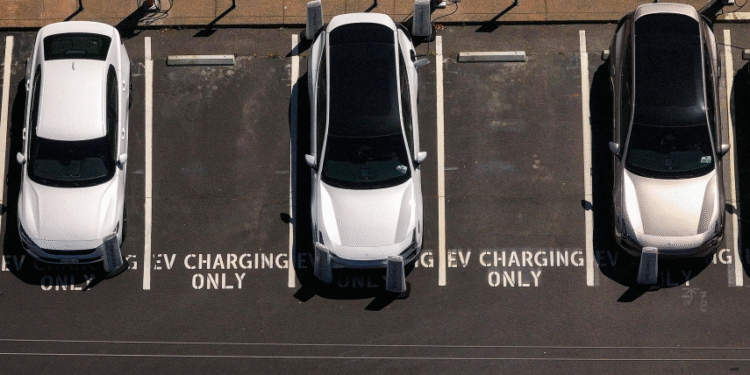President Donald Trump signed three resolutions Thursday that strip California of its authority to mandate electric vehicle (EV) sales and set its own tailpipe emissions standards—moves aimed at halting the state’s push to phase out gasoline-powered cars.
The resolutions reverse California’s landmark 2024 policy banning new gas-powered vehicle sales by 2035 and eliminate the state’s federal Clean Air Act waiver, which had allowed it to enforce stricter emissions rules. Seventeen states—representing 30% of the U.S. auto market—that had adopted California’s EV mandate are now barred from enforcing those standards. Trump also repealed California’s planned increase in zero-emissions heavy-duty truck sales.
“We officially rescued the U.S. auto industry from destruction by terminating the California electric vehicle mandate once and for all,” Trump declared during a White House press conference.
California Governor Gavin Newsom fired back, vowing to sue over what he called an illegal move.
“This latest illegal action by a President who is a wholly-owned subsidiary of big polluters will not stand,” Newsom said in a statement.
Trump and Newsom are already at odds over the President’s deployment of National Guard troops to address immigration-related protests in Los Angeles.
The action has also fueled tension between Trump and Tesla CEO Elon Musk. The two had a public falling-out last week, reportedly due in part to Trump’s anti-EV stance. Still, Trump tried to downplay the rift.
“Now we know why Elon doesn’t like me so much, which he does. Actually, he does,” Trump said.
Industry and Environmental Response
Automakers largely welcomed the move, praising the end of fragmented regulations. General Motors released a statement saying:
“We have long advocated for one national standard that will allow us to stay competitive, continue to invest in U.S. innovation, and offer customer choice across the broadest lineup of gas-powered and electric vehicles.”
Chris Spear, CEO of the American Trucking Association, added:
“Today, common sense prevailed.”
However, climate advocates and environmental groups condemned the decision.
“The chief winners of this move are the oil industry and China,” said Michael Gerrard, founder of the Sabin Center for Climate Change Law at Columbia University. “Electric vehicles are the main threat to the demand for oil, and this move further cements China as the global leader in producing electric vehicles.”
China accounted for two-thirds of global EV sales in 2024, up from 50% in 2021.
Katherine Garcia of the Sierra Club expressed concern about the long-term impact.
“Instead of investing in electric vehicle manufacturing here in the U.S. and leading us towards a healthier future, the administration is dead set on pushing us backwards and ceding EV innovation and leadership to China.”
EPA Administrator Lee Zeldin supported Trump’s decision, arguing California’s policies had reduced “consumer choice for Americans in every state.”
Despite the legal challenges and political uproar, Trump’s announcement marks a major shift in federal policy—and a significant blow to California’s role as a leader in clean transportation.









